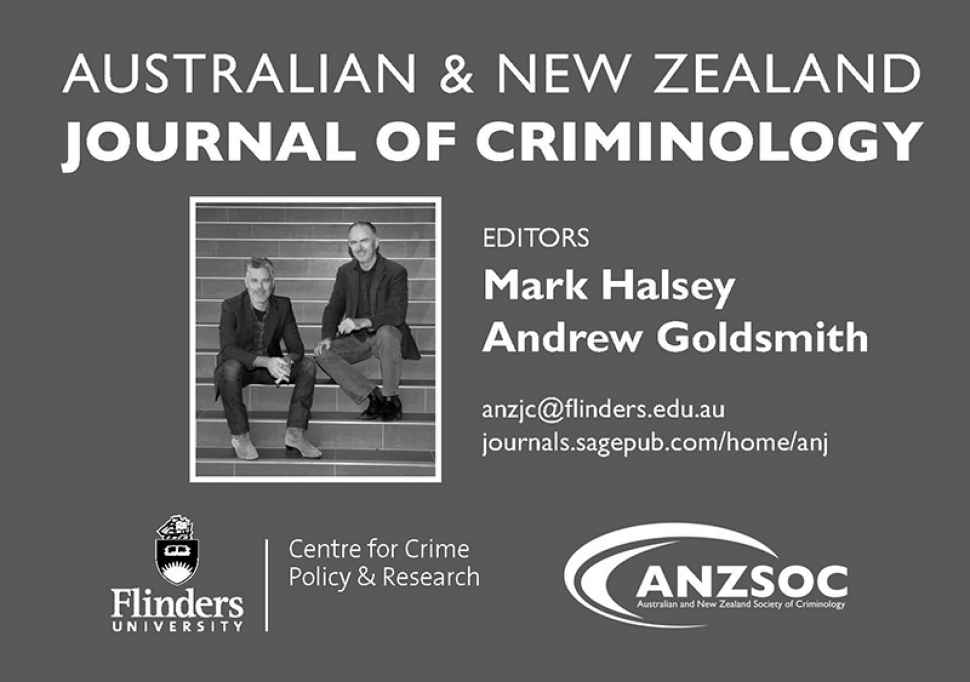Criminal networks exist at local and international levels and are often connected to corruption groups and, in some cases, terrorist organisations.
This is a growing threat to national security.
Leading Flinders criminologists are engaged in work around these concerns.
Professors Andrew Goldsmith, Mark Halsey and Associate Professor David Bright are undertaking an Australian Research Council (ARC) study looking at the role that firearms play in criminal life, with Professor Bright also involved in a number of studies with colleagues here and overseas around drug and organised crime networks.
Studies related to radicalisation and terrorism are also underway, led by Professor Christian Leuprecht, Professor Andrew Goldsmith and Dr Russell Brewer in collaboration with agencies in Australia and Canada.
We decided on a more in depth interview style process to extract the best qualitative information, and that’s what makes the project really innovative.
Professor David Bright
PhD research highlights

Adrian Leiva - Recruitment into organised groups - Supervised by David Bright / Andrew Goldsmith
Adrian’s research interest in organised crime is the result of a lifelong fascination with Italian Mafias and the social and cultural factors that have shaped and influenced these criminal entities.
His research thesis aims to explore the recruitment pathways into organised criminal groups and the development of co-offending relationships within illicit enterprises - with particular focus on social and kinship ties.
Due to the scarcity of published material on recruitment into organised crime, Adrian’s research thesis will provide a theoretical framework that will explain the varied pathways into organised criminal groups.
The results from the thesis will provide new insight into Australian organised crime, as well as guide future research and assist in the development of programs to prevent recruitment into criminal organisations.
Adrian’s research focus relates to the CCPR’s interest in ‘organised crime and criminal networks’ and is hoped that the results will contribute to the wealth of research conducted by the CCPR.

David Sepmat Gavara Nanu - Criminal networks and carbon fraud - Supervised by Professor Willem de Lint / Dr. Russell Brewer
PhD candidate, David Sepmat Babida Gavara-Nanu, traces the history of the emergence of “carbon fraud” – the term denoting fraudulent criminal acts committed through the exploitation of carbon credit trading markets. The exploitation of the European Union Emissions Trading Scheme in 2008, by various international organised criminal networks, resulted in the theft of millions of dollars and carbon credits from unsuspecting institutions and vulnerable people. This event formed the basis for the birth of this research in 2015.
As a result of the theft, the Trading Scheme tightened its regulation leading INTERPOL to predict that criminal groups will depart from defrauding the compliant carbon trading market and move to exploit the non-compliant markets. Utilising a number of theories including predominantly Crime Prevention Theory, this research project explores potential avenues organised criminal networks might utilise to hijack the United Nations endorsed - Reducing Emissions from Deforestation and forest Degradation scheme. Focusing on Papua New Guinea as a single case study, the project examines criminal networks operating in that country who are most likely to infiltrate REDD+ projects there, with the collaboration of corrupt government officials. The research combines theories in green criminology, international law, economics and social science, whilst collating data through qualitative means, seeking ultimately to develop theories and policies intended for REDD+ implementing countries and the financiers of REDD+ projects, to combat carbon fraud.
Drawing on the expertise, experience and lateral thinking of members of the Centre for Crime Policy and Research, this research project promises potential ground-breaking findings in climate change development in an area not fully understood and highly controversial. However, it exemplifies the Centre’s evolving status in becoming a leader in innovative research cutting across the Centres’ key areas of interest of organised crime and criminal networks, corruption prevention, justice and security systems and transnational security.
Grants and consultancies
Understanding and preventing gun crime in Australia (ARC Discovery Grant, 2015-2019)
Andrew Goldsmith, Mark Halsey & David Bright
This project makes an original qualitative contribution to understanding and preventing gun violence in three contexts: drug dealing/trafficking, organised crime activity and armed robbery. Project results will have direct implications for reducing the impact of gun violence in Australia.
Understanding and the structure and composition of co-offending networks in Australia (AIC Criminology Research Grant, 2017 - 2018)
David Bright
The study aims to: (1) examine co-offending networks across multiple crime types; (2) examine variations in co-offending across crime categories; (3) determine differences in the duration of co-offending networks across crime types; (4) explore cross-jurisdictional variations in co-offending networks; and (5) identify implications for law enforcement policy and practice. It is the first analysis of co-offending in Australia and the first in the world to analyse co-offending networks using three levels of cross-sectional network analysis (network-level, group-level, node-level) and a longitudinal analysis. Results will significantly extend our knowledge of offending patterns and have direct implications for preventing and controlling crime.
Collaborations
Flinders criminology staff are collaborating with other scholars in these areas from the University of Montreal, Leeds University, and the University of New South Wales among others. They also collaborate with a variety of agencies in the field.
The Centre's current study on radicalisation is in collaboration with the Defence Science and Technology Group.
Publications and reports
The Australian and New Zealand Journal of Criminology is one of the world's longest-running criminology journals, having been established in Melbourne in 1968. It's a leading international peer-reviewed journal for criminological research and is the principal journal of the Australian and New Zealand Society of Criminology Inc.
The journal is dedicated to advancing research and debate on a range of criminological problems and embraces diverse methodological approaches, being home to a wide range of criminological and interdisciplinary work in the field of crime and criminal justice.
It's committed to advancing theoretical, empirical and policy debate in Australia, New Zealand and beyond.
As editors of this journal, Professors Andrew Goldsmith and Mark Halsey play a significant role in it's ongoing success.
This journal is a member of the Committee on Publication Ethics (COPE).



